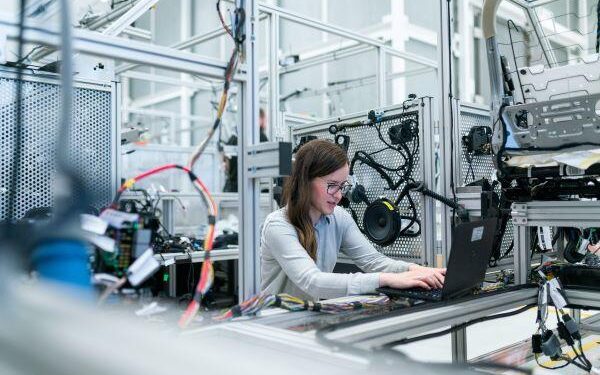As the global focus on sustainability intensifies, Washington State is at the forefront of a transformative shift towards renewable energy. The Washington State Department of Ecology is leading the charge, unveiling innovative pathways for aspiring professionals eager to enter this rapidly evolving field. With the state’s commitment to reducing carbon emissions and promoting green technologies, a wealth of opportunities are emerging in sectors such as solar energy, wind power, and energy efficiency. This article explores the various career trajectories available within Washington’s renewable energy landscape, highlighting initiatives, educational programs, and partnerships designed to empower the next generation of environmental stewards. As the state paves the way for a cleaner, sustainable future, the stakes are high—and so are the prospects for those ready to embrace the challenge.
Exploring Diverse Career Opportunities in Washingtons Renewable Energy Sector
The renewable energy sector in Washington is burgeoning, presenting a plethora of career paths for those eager to contribute to a sustainable future. From solar energy specialists who harness the power of the sun to wind turbine technicians maintaining the state’s expansive wind farms, the opportunities are as varied as the resources themselves. Other rewarding roles include energy efficiency analysts, who work to optimize consumption practices, and environmental policy advisors, who craft the regulations that support the industry. As the demand for clean energy escalates, so does the need for skilled professionals to bridge the gap between technology and implementation.
Educational institutions across the state are recognizing the importance of developing talent for this vital field. Programs ranging from certificate courses to advanced degrees in renewable energy focus on equipping students with the practical skills and theoretical knowledge necessary to thrive. Notable career opportunities also exist within nonprofits and governmental agencies aimed at promoting renewable initiatives. Prospective job seekers can explore positions such as:
- Renewable Energy Project Managers
- Sustainability Consultants
- Research Scientists in Energy Technologies
- Community Outreach Coordinators
With the current strategic investments in infrastructure and policies favoring green technologies, Washington’s renewable energy landscape is set for exponential growth. A table below outlines some key industries within this sector, highlighting their primary renewable energy focus.
| Industry | Primary Energy Focus |
|---|---|
| Solar Power | Photovoltaic Systems |
| Wind Energy | Onshore and Offshore Wind Farms |
| Hydropower | Dam Operations and Maintenance |
| Bioenergy | Biomass Production |
Skill Development and Educational Pathways for Future Professionals
As the renewable energy sector continues to expand, Washington State is emerging as a key player in fostering the next generation of professionals equipped with the necessary skills and expertise. Educational institutions and training programs are adapting to meet the demands of this evolving landscape through innovative curricula and hands-on experiences. Students can engage in a variety of pathways, including:
- Community Colleges: Offering degrees in renewable energy technology, environmental science, and sustainable engineering.
- Universities: Programs focusing on policy, management, and interdisciplinary studies related to energy systems.
- Vocational Training: Certificates in solar installation, wind turbine maintenance, and energy efficiency auditing.
- Internships & Apprenticeships: Practical experience with local energy companies, NGOs, and government agencies.
To illustrate the growing opportunities within this field, consider the following data on projected job growth and necessary certifications:
| Job Title | Projected Job Growth (2020-2030) | Essential Certifications |
|---|---|---|
| Solar Photovoltaic Installer | 51% | MWBE, NABCEP |
| Wind Turbine Technician | 61% | GWO, OSHA |
| Energy Efficiency Consultant | 15% | LEED, BPI |
Such data not only reflects the urgency of skill acquisition but also the potential for rewarding careers in a sector that prioritizes sustainability and innovation. By pursuing these educational options, aspiring professionals can position themselves as leaders in renewable energy, driving the transition to a greener future.
Policy Recommendations to Enhance Workforce Readiness in Renewable Energy
To bolster workforce readiness in the renewable energy sector, policymakers should focus on enhancing educational programs and fostering industry partnerships. Investing in community colleges and vocational training institutions to develop tailored programs that meet the specific needs of local employers can create a more skilled workforce. This could include expanding certifications for technology like solar panel installation, wind turbine maintenance, and energy efficiency auditing. Establishing apprenticeship programs can also bridge the gap between education and employment, providing students with hands-on experience while still in training.
Additionally, creating a statewide awareness campaign about careers in renewable energy can attract a diverse pool of candidates to consider these vital roles. Policymakers should promote initiatives that encourage underrepresented groups to enter the field, ensuring that the workforce reflects the diversity of the community. Furthermore, incentives for businesses that hire and train new employees in renewable sectors can stimulate job growth. Collaboration among government, educational institutions, and the private sector will be essential in implementing these strategies effectively.
Key Takeaways
As Washington State positions itself at the forefront of the renewable energy movement, the pathways to future careers in this rapidly evolving sector promise to be both diverse and impactful. With initiatives led by the Washington State Department of Ecology, emerging opportunities in fields such as solar energy, wind power, and sustainable agriculture are becoming increasingly accessible to a new generation of professionals. By fostering education, training, and community engagement, Washington not only aims to combat climate change but also to build a robust workforce ready to meet the challenges of tomorrow. As the state continues to develop its green economy, the synergy between innovation and environmental stewardship will play a crucial role in shaping a sustainable future for all. For those contemplating a career in renewable energy, the time to act is now—because the power to create a greener tomorrow lies in our hands.










